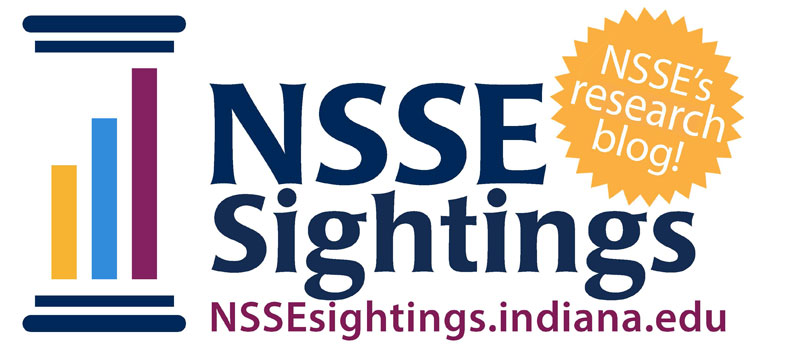NSSE annually offers the option of Topical Modules--short question sets, appended to the core survey, on focused areas such as academic advising, civic engagement, transferable skills, writing, first-year experiences and senior transitions, global learning, and diversity and inclusion. Institutions can append up to two additional sets of questions, either a customized set as part of a consortium or a Topical Module. About 90% of participating institutions choose to append at least one module. For the past several years, Academic Advising, First-Year Experiences and Senior Transitions, and Inclusiveness and Engagement with Cultural Diversity have been top module picks.
Given the changing higher education landscape, NSSE offers ten module options, including three new Topical Modules for the 2021 administration:
HOW SHOULD YOU SELECT YOUR TOPICAL MODULES?
Choosing only two modules from ten options can be tough! A main factor is the appeal of the topic. Modules provide in-depth examination of important issues in higher education and are therefore responsive to current institutional matters. They are also a way to draw in new campus audiences to overall student engagement results and module results in particular. Developing an idea about who would be interested in the topic, how results can be used, or what campus issue the data might inform, may help your decision. For example, the module Inclusiveness and Engagement with Cultural Diversity may be a good choice for colleges and universities seeking to address equity and inclusion.
While some institutions repeat modules to assess continuity or change in practice, others like to assess new and different topics each time. For the latter, our new offerings listed above may be of particular interest. For example, two specifically ask students input about the impact of the pandemic on their well-being and the quality of their engagement in online learning. If you are considering one of the new module options, you'll want to begin by reviewing the module descriptions and survey questions. The following information can help you determine the modules that best suit your needs.
WHY CHOOSE A NEW TOPICAL MODULE?
The Career and Workforce Preparation module represents a collaboration between NSSE and Strada Education Network to address current interest in how undergraduate education prepares students for work and careers.
Institutions might choose this module if ...
- Students' career preparation experiences, and the extent to which courses and career services prepare them for the workplace, are components of your institutional assessment plan.
- You want to better understand what influences your students' career plans.
- Results can help demonstrate to students and families how well the institution prepares students for career and work.
- You want to pinpoint shortcomings and strengths in work and career preparation and inform institutional action, including the development of career services/events and integration with curriculum or participation in career services.
- Results can inform conversations between advising offices and career services - for example, how advisors might direct certain students to career services earlier.
Coping with COVID will help institutions explore the impact of the COVID-19 pandemic on students' educational experiences, mental wellness, and everyday life experiences.
Institutions might choose this module if ...
- Students' experience during the pandemic is important to assess.
- Students' mental wellness and exacerbation from the pandemic is a concern for your campus.
- Results can help demonstrate the effectiveness of institutional response to the pandemic.
- Acknowledging stressors and disruptions is important to helping students recover from negative potential impacts.
- Results can help determine if the pandemic played a role in exaggerating inequalities for groups already at-risk (minoritized or underrepresented students).
- Results can motivate the development of resources for those experiencing the most loss (wellness, housing and food insecurity, educational setbacks)
Experiences with Online Learning is based, in part, on Quality Matters standards used for creating courses that are structured optimally and engage students in key ways.
Institutions might choose this module if ...
- Assessment of partly or entirely online courses is a component of your assessment plan.
- Results can inform instructors about elements of high-quality online courses and help guide instructional improvement agendas.
- The shift in delivering courses entirely or partly online has been challenging for your students and faculty, and you want to understand the potential influence on enrollment decisions and provide students the opportunity to weigh in about their experience.
- Results may help market your online learning opportunities. For example, to demonstrate that while the "whole campus experience" may be preferred, the quality of remote learning is satisfactory.
- Accreditors expect to see that online and face-to-face instruction are being assessed using quality measures and that experiences are equitable.
Topical Modules provide participating institutions the opportunity to explore relevant issues in more depth, so choose wisely!
TWO FINAL CONSIDERATIONS
Institutions participating in the Faculty Survey of Student Engagement (FSSE) also have the option to administer similar modules to faculty.
Recently participating institutions may also administer modules during a NSSE "off-year" via a licensing agreement. The "off-year" option may work well for institutions that, for example, want to use the Academic Advising module to assess their improvements to advising practices, but they aren't planning a standard NSSE administration until the following year. Licensing modules also works for surveying a specific student group on a topic of interest--for example, inviting juniors who have completed a global learning general education course or study abroad experience to complete the Global Learning module. For more information about this option read Administer a Topical Module During an "Off-Year."


